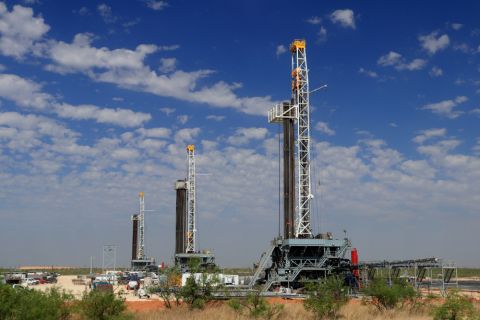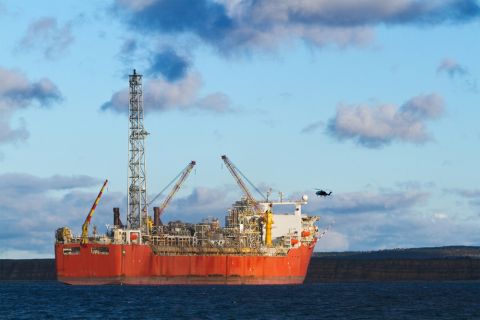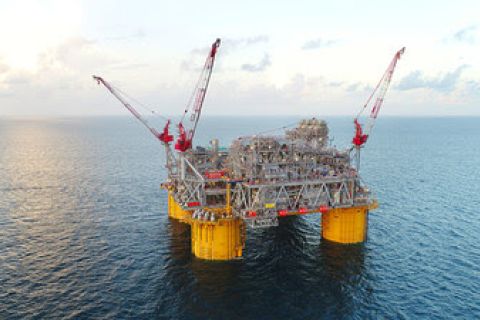U.S. companies can resume most trade with Libya, as President George Bush has removed restrictions on business with the North African country in exchange for its surrender of its weapons of mass destruction. The country has been off-limits to U.S. companies since the 1980s, however the relationship between Libya and the Western world has improved in recent months. United Nations sanctions against Libya were lifted last September after Libya took responsibility for the 1988 Lockerbie airliner bombing and agreed to pay reparations. Then, in December, Libya announced it would end its pursuit of nuclear, chemical and biological weapons development. This opened the door for U.S. oil companies to begin discussions with Libya. In March, Occidental Petroleum chairman and chief executive officer Ray R. Irani met with Libyan leader Moammar al-Ghadafi in Libya to discuss the resumption of the company's operations that were suspended in 1986. In addition to Oxy, American oil companies Marathon Oil, Amerada Hess and ConocoPhillips have a history in Libya that could resume now that sanctions are lifted. This would allow them to join oil companies from Spain, Italy, Austria, Canada, Germany, France, India, Turkey and Australia that are already working in Libya. At a recent briefing with energy industry representatives, attorneys from law firm Vinson & Elkins shed some light on the situation. Rindala Beydoun, in the firm's Dubai office, said that 116 blocks are open to foreign investors, but the vast majority have not been awarded yet. Libya's official line is that the country was not waiting for U.S. sanctions to be lifted before offering those blocks. But in reality, it was good for U.S. firms to know those blocks are available, she said. At press time, Libyan officials announced that eight blocks will be offered for licenses this year, and several dignitaries visited U.S. oil executives in Houston during the Offshore Technology Conference. The downstream also could benefit from foreign investment. Libya has three refineries, but there are plans to upgrade the whole refining system. And, the country is trying to encourage investment in petrochemicals, she said. Another potential area for foreign investment is liquefied natural gas (LNG). In 1971, Libya became the second country in the world to export LNG when it built the Marsa El Brega plant. But Libya still has only that one plant, which is producing at only one-third of its capacity due to technical limitations, Beydoun said. In March, Royal Dutch/Shell signaled its interest in Libyan LNG when it signed a heads of agreement with Libya for a long-term strategic partnership in the Libyan upstream oil and gas industry. The agreement is a preliminary understanding regarding key principles for participation by Shell in the Libyan upstream, including onshore exploration, and the development of LNG facilities. "The [agreement] could lead to the development of world-class integrated upstream and LNG export projects," Shell said in a statement. Shell will continue negotiations on specific projects in Libya this year. The company was active in the Libyan upstream from the 1950s until 1974, and conducted exploration in the country in the late 1980s. Chris Strong, also in Vinson & Elkins' Dubai office, said Libya is close to finalizing EPSA IV-the latest version of its exploration and production sharing contracts. EPSA IV will be similar to EPSA III, but will address issues that have been controversial. Currently, international oil companies operate in Libya under the supervision of a management committee. That committee-which decides all major issues relevant to petroleum operations-is made up of two representatives from the Libyan national oil company and one member from the international oil company. Issues are decided by majority vote, meaning the Libyans can effectively ignore the wishes of the international oil company. But in EPSA IV-which is promoting transparency through an open bidding process-unanimous voting will be required on all issues facing the management committee, Strong said. Libya anticipates launching the first bid round under EPSA IV by the end of the second quarter, he said. According to Reuters, some U.S. sanctions against Libya will stay in place. Libyan government assets in the U.S. will remain frozen and air travel will still be restricted. Libya will also remain on the U.S. list of "state sponsors of terrorism," which bars it from receiving U.S. arms exports, controls sales of "dual-use" items with military and civilian applications and limits U.S. aid, among other measures, Reuters reported.
Recommended Reading
TPH: Lower 48 to Shed Rigs Through 3Q Before Gas Plays Rebound
2024-03-13 - TPH&Co. analysis shows the Permian Basin will lose rigs near term, but as activity in gassy plays ticks up later this year, the Permian may be headed towards muted activity into 2025.
TotalEnergies Starts Production at Akpo West Offshore Nigeria
2024-02-07 - Subsea tieback expected to add 14,000 bbl/d of condensate by mid-year, and up to 4 MMcm/d of gas by 2028.
Well Logging Could Get a Makeover
2024-02-27 - Aramco’s KASHF robot, expected to deploy in 2025, will be able to operate in both vertical and horizontal segments of wellbores.
Shell Brings Deepwater Rydberg Subsea Tieback Onstream
2024-02-23 - The two-well Gulf of Mexico development will send 16,000 boe/d at peak rates to the Appomattox production semisubmersible.
E&P Highlights: Feb. 26, 2024
2024-02-26 - Here’s a roundup of the latest E&P headlines, including interest in some projects changing hands and new contract awards.





